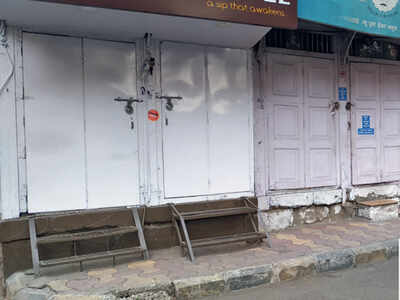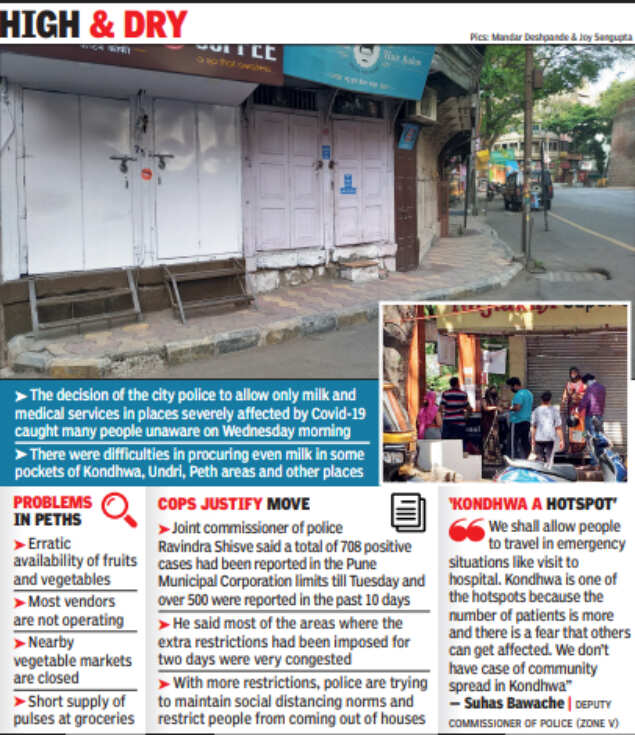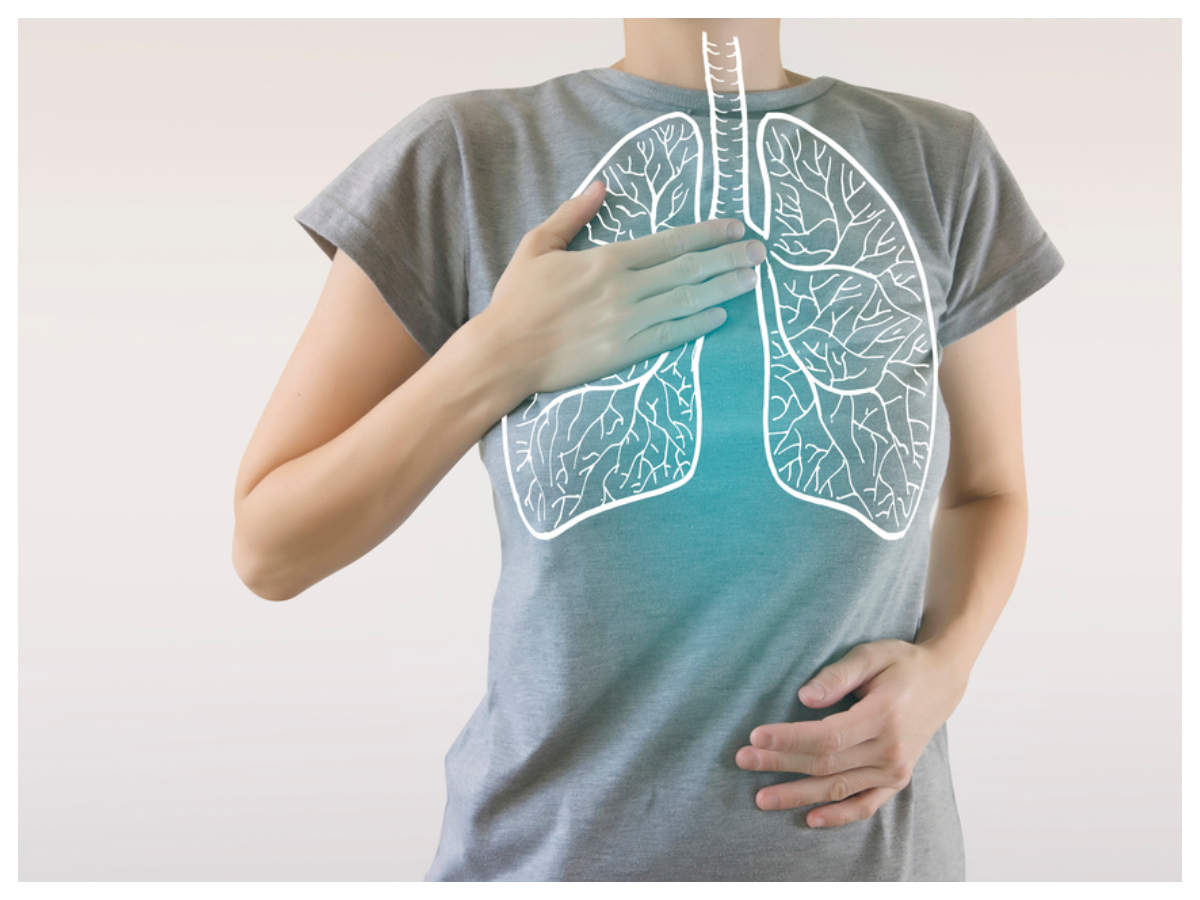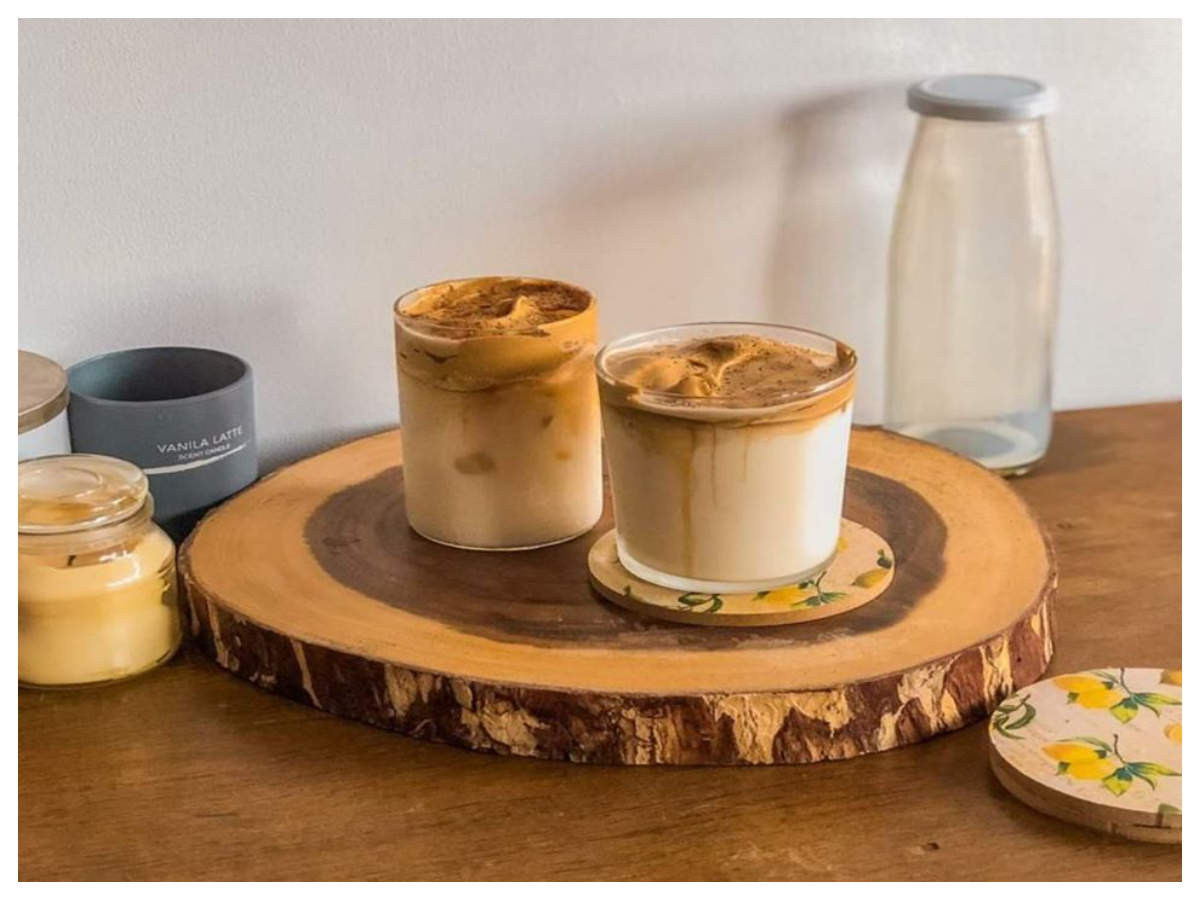
PUNE: The decision of the city police to allow only milk and medical services in places severely affected by Covid-19 caught many people unaware on Wednesday morning, triggering anxiety among residents of Kondhwa, Undri, Peth areas and other locations.

Several grocers in Undri claimed on Wednesday that they did not have any prior information about the new arrangements. “I opened my shop at 10am. A police team arrived within a few minutes and told me to down the shutters, citing the new order. I pleaded with them that the entire milk stock would go to waste. They reluctantly agreed to let me keep the shop open for around an hour. I alerted my customers to collect milk. I shut the shop by 11am. I am ready to abide by all the orders. But there should be a proper information system,” a shopkeeper said.
Activist Tanaji Lonkar said, “The police should have created more awareness among people to enable them to stock food items.”
Late on Tuesday, the police imposed additional restrictions in severely affected areas under the jurisdiction of 10 police stations, including Kondhwa, Faraskhana, Samarth and Khadak. Shops selling grocery, vegetables, fruits, mutton and eggs in these areas would remain closed till April 23 midnight.
Pune police commissioner K Venkatesham said, “We shall review on Thursday the two-day additional restrictions in the severely affected areas and decide on the further course of action.”
Yerawada businessman Haji Zakir Shaikh said, “Imposing more restrictions on the Covid-19 hotspots is fine, but the police have not communicated the decision to residents in an apt manner.”
Bhavani Peth’s Arif Tamboli said, “There are complaints related to shortage of milk supply..”
Hotelier Rafique Shaikh said, “The police removed vegetable vendors from Chaman Shah Chowk and Kasewadi slums in Bhavani Peth and even caned people. The corporation has opened a mobile clinic and its health workers are visiting people in the affected areas. They are checking residents with fever guns, identifying those with symptoms of coronavirus and treating them.”

Several grocers in Undri claimed on Wednesday that they did not have any prior information about the new arrangements. “I opened my shop at 10am. A police team arrived within a few minutes and told me to down the shutters, citing the new order. I pleaded with them that the entire milk stock would go to waste. They reluctantly agreed to let me keep the shop open for around an hour. I alerted my customers to collect milk. I shut the shop by 11am. I am ready to abide by all the orders. But there should be a proper information system,” a shopkeeper said.
Activist Tanaji Lonkar said, “The police should have created more awareness among people to enable them to stock food items.”
Late on Tuesday, the police imposed additional restrictions in severely affected areas under the jurisdiction of 10 police stations, including Kondhwa, Faraskhana, Samarth and Khadak. Shops selling grocery, vegetables, fruits, mutton and eggs in these areas would remain closed till April 23 midnight.
Pune police commissioner K Venkatesham said, “We shall review on Thursday the two-day additional restrictions in the severely affected areas and decide on the further course of action.”
Yerawada businessman Haji Zakir Shaikh said, “Imposing more restrictions on the Covid-19 hotspots is fine, but the police have not communicated the decision to residents in an apt manner.”
Bhavani Peth’s Arif Tamboli said, “There are complaints related to shortage of milk supply..”
Hotelier Rafique Shaikh said, “The police removed vegetable vendors from Chaman Shah Chowk and Kasewadi slums in Bhavani Peth and even caned people. The corporation has opened a mobile clinic and its health workers are visiting people in the affected areas. They are checking residents with fever guns, identifying those with symptoms of coronavirus and treating them.”

Coronavirus outbreak
Trending Topics
LATEST VIDEOS
More from TOI
Navbharat Times
Featured Today in Travel
Quick Links
Kerala Coronavirus Helpline NumberHaryana Coronavirus Helpline NumberUP Coronavirus Helpline NumberBareilly NewsBhopal NewsCoronavirus in DelhiCoronavirus in HyderabadCoronavirus in IndiaCoronavirus symptomsCoronavirusRajasthan Coronavirus Helpline NumberAditya ThackerayShiv SenaFire in MumbaiAP Coronavirus Helpline NumberArvind KejriwalJammu Kashmir Coronavirus Helpline NumberSrinagar encounter
Get the app









